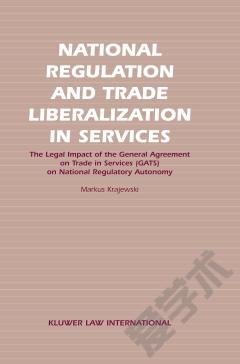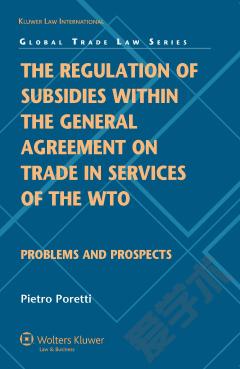National Regulation and Trade Liberalization in Services —— The Legal Impact of the General Agreement on Trade in Services (GATS) on National Regulatory Autonomy
----- 国家规制与服务中的贸易自由化
Like tariffs and other border measures, national regulatory barriers impede international trade. Unlike tariffs, however, such barriers usually indicate an important domestic policy choice. This "conflict of interest" has emerged as a crucial issue in international law, particularly with regard to services, such as telecommunications and health services.This study is the first to analyze the potential impact of incompatibilities between national regulatory regimes and the rules and obligations imposed by the General Agreement on Trade in Services (GATS). In the process of arriving at his challenging concluding theses, the author investigates such relevant concepts as the following:? the political and ideological dynamics of GATS negotiations;? policies common to diverse national regulatory systems;? the notions of "deregulation" and "privatization";the human rights implications of international trade law;? the GATS obligations of market access, national treatment, and most-favoured-nation treatment;? the role of the WTO's dispute settlement organs; and? GATS transparency obligations and disciplines for domestic regulations.Dr Krajewski's study is of enormous significance to specialists in regulatory policies and instruments at all national and sectoral levels, especially in the context of ongoing GATS negotiations. As the author warns: "Unless GATS negotiators and national regulators have a thorough understanding of the relationship between GATS obligations and regulatory policies and instruments, they cannot effectively use the flexible elements of GATS and could reach an agreement which they may later regret."
{{comment.content}}








 京公网安备 11010802027623号
京公网安备 11010802027623号